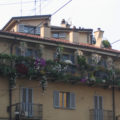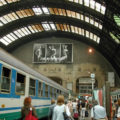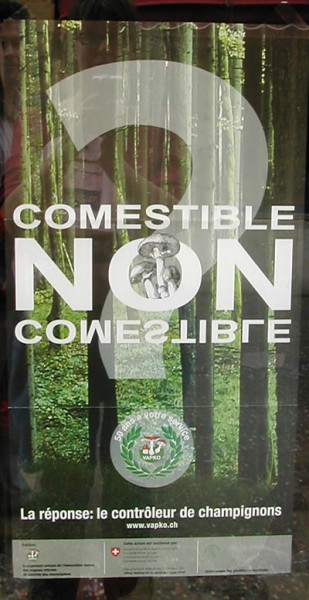This page is mostly a collection of previously-published material, bringing together in one place the long, painful story of our experiences with Telecom Italia. And the story keeps growing…
May 22, 2003
Setting up simple household utilities in Italy used to be an arduous process. As one friend put it, getting a phone line installed required “a recommendation and a bottle of whiskey.” The recommendation would ideally be from someone with contacts inside Telecom Italia, to ask the folks there to be nice to you. The bottle of whiskey would be a “gift” to encourage the technicians to get their job done, but you might need another bottle to tide you through the months-long, completely unnecessary wait!
Things have changed. I called Telecom Italia last week about a line for the new apartment in Lecco. The place has been inhabited before, so the wires are there, but I wasn’t sure all the plugs were working, and the line was of course disconnected. The lady said that a technician would call me in about ten days to make an appointment. Actually, he called me two days later, when I happened to be too far away from Lecco to meet him. So we made an appointment for yesterday morning, 9:30. When I arrived at 9:15, he was already standing outside waiting for me. Turns out some repairs were needed to two plugs, but within an hour all five plugs and the line were working.
Getting Connected
July 31, 2003
Two months back, I wrote about the pleasant surprise of finding Telecom Italia easier to deal with than they’d ever been before. Well, “easier” is a relative term. The phone line did get turned on immediately and all the plugs are working. The first bill also arrived immediately, and was twice what it should have been; they had forgotten to give us the discount for rolling over service from Milan to Lecco. So I had to call and straighten that out – strike one for Telecom.
I had also ordered “Alice Flash Mega,” Telecom’s top of the line ADSL Internet service, which would include a wireless router to network the family laptops to my big Dell desktop machine, so we could all be online simultaneously (increasingly an issue in this family). Obviously, this couldn’t be done until the phone line was installed, and I wasn’t in a hurry since I would be travelling; what little time I was home, I could limp along with a dial-up connection (these are offered free in Italy, since we pay by the minute even for local calls).
I planned to call Telecom and remind them once I got home, but, to my surprise, the modem was waiting for me when I arrived. The first part of the instructions actually reflected reality, so I was able to get the hardware and software working very easily. I stalled where the instructions referred to a username and password that I would need to connect; none were included in the box. I figured I would have to call Telecom on Monday.
However, when I fired up the Dell on Sunday to do some non-Internet things, Windows XP informed me that my modem was connected at 831 kbps. I supposed it had to be connected to something, so I opened Internet Explorer, and was taken immediately to a sign-up page for Alice, where I was able to make up my own username and password. I was then presented with “Alice’s Room,” where I could get into some cute services like online TV, or just go straight onto the ‘net.
This Dell had never been online before (I long ago gave up the struggle to get my previous service’s ADSL modem to work under Windows XP), so I spent the rest of Sunday preparing it to face the Internet…
I called Telecom Italia on Tuesday to find out when to expect the network router. Turns out they had screwed up the order and given me the most basic ADSL service, which doesn’t include WiFi. Strike two for Telecom. So I had to put in an upgrade request, and am now awaiting a call (“within 10 days”) from the technician who is supposed to bring the router and install it. Installation is included in the price, otherwise I’d just tell them to bring the router and let me deal with it. I have a feeling that the technician will do no better than I could myself, and a stronger feeling that I will have to upgrade the two laptops to Windows XP in order to get all the machines to talk to each other; I had a terrible time trying to do it with a regular, wired network, and gave up in the end.
I’m also waiting for another technician to come and check the line, which is very noisy when the modem’s attached, even with the ADSL filters on the phone plugs. Not supposed to be that way. Strike three for Telecom. Oh, well. At least so far I haven’t needed a bottle of whiskey.
Connecting, or Trying to
Nov 18, 2003
Way back in July I wrote about getting my Telecom Italia ADSL connection up and running, only to discover that I wasn’t getting the level of service I had requested. What’s happened since then has been so ludicrous that I don’t even want to recount the whole, painful story. Maybe (said she hopefully) the final piece will get done this Thursday when, after much screaming down the telephone, a technician is finally coming to install the router, and we should finally have everything we asked for back in May. Yeah, right.
I must have talked to about 30 different people by now at Telecom’s 187 customer service line, and, in sheer desperation, screamed at a number of them. Mostly, I feel almost as sorry for them as I do for myself. They’re supposed to be servicing customers, but they don’t seem to have much power to do so. They can’t talk to the technicians. One regional office can’t forward a call to another (if you call from a cellphone, you end up speaking to any region at random, but certain services can only be done from the local region). Half the time their computer systems are down when you call, or they can’t do what you’re asking from the systems they have access to. Hell, about 20% of the calls I’ve made have had to be re-dialled because the connection was broken either during hold time or in the middle of conversation – hello, are we a telecommunications firm?
Telecom Italia, like America’s AT&T two decades ago, is having to adjust to no longer being a monopoly, which they still were when we arrived in Italy in 1991. In those days, abuse of customers was legendary, and easy to get away with. There was no such thing as an itemized phone bill, unless you specifically asked and were willing to pay extra for it. So Telecom Italia employees had a well-known practice they called il ponte (the bridge): if you had a foreign last name and made overseas calls, Telecom employees would make personal long-distance calls and bill them to you, because, with an average larger phone bill, you were less likely to notice or complain.
Nowadays Telecom Italia has competition in both cellphones and landlines, and this creaking behemoth is struggling to figure out the concept of customer service. Telecom Italia reps have been known to practically weep on their customers, longing for the good old days.
Dec 17, 2003
…
Now we’re having a big hassle with Telecom about overbilling (to the tune of 500 euros). It’s time to write another letter…
Oct 8, 2004
…And you need to stay on top of Telecom Italia. I called them on September 8th to inform them of our move on the 27th. I called again twice, and each time was told that the process was underway. Enrico called on October 4th [when we had already been in the new house for a week], and found out that the process had come to a dead stop. The previous owner of our house had had the phone line registered as a business line, possibly because he was claiming a tax deduction on using part of the house as an office. Now we’re trying to switch it to a home line, causing endless confusion at Telecom. At one point they claimed they needed to do a technical test on the line, even though I was calling them from it (the old owner’s number is still active at the house, though it was supposed to be turned off 10 days ago).
Further, our house number has a letter in it, and Telecom’s computer system doesn’t know what to do with this, and/or the paperwork can get lost in the computer depending on whether a capital or small letter is entered. Gah! …
Oct 20, 2004
…Telecom Italia… continue to lose marks on both competence and politeness.
It’s been over a month since my first phone call about our change of residence. I had called Telecom on Sept 8th, warning them that we would be moving house, and wanted exactly the same services in the new place as we had (finally, painfully) had set up in the old place. “It’s a good thing you didn’t call any later,” the first lady told me. “Our current average for a move is 20 days.”
Our move occurred on the 27th. After a day or two we called Telecom. Several days later, still no phone line – in fact, the previous owner’s line was still on, though he had requested Telecom to shut it off the day we moved. Enrico talked at length with someone who told him that there was a mess on Telecom’s end, possibly due to the fact that the previous owner had had a business contract for his phone line in the house, possibly also because our address contains a letter as well as a number, which caused problems for the computers and/or the operators (this kind of address is not that rare in Italy!). This person advised Enrico that it would be faster to simply start over again with a new contract and phone number. A new contract normally costs more than a move, but she would give us the moving discount.
Monday (Oct 11) my cellphone rang, someone from Telecom in Como. “We’ll activate your new phone line in half an hour,” she said, “I’ll call you back when it’s on.” She never did call, and I checked the line all day – no change.
Tuesday morning I checked again and, lo!, our new number was finally working (the half hour had been more like 24 hours). But I hadn’t been able to ask the lady about the ADSL connection. So I called. The phone menu didn’t give any options that seemed suitable, so I chose “line faults.” I started to explain the situation to the lady who answered. She interrupted: “I’ll pass you to the commercial section.” Then I heard her lay the receiver on a desk and complain to a colleague: “We get everything on this line!” Did she want me to hear her bitching, or is she – a phone company employee – simply incompetent to transfer a call?
After 60 seconds or so I was passed on to another office, where the man told me: “The ADSL is turned on in a second step, it will be done by the 17th.”
“Given that I made the original request to move a line on September 8th, and all this delay is due to confusion on your end, couldn’t you guys speed it up a little?” No, they couldn’t, wouldn’t even try.
So now the ADSL modem is connected and turned on, and I wait hopefully for the little green LED to come on, informing me that my ADSL line is working. That’s the only way I’ll know – Telecom has no intention of calling to inform me.
Wednesday or Friday : The DSL light on the modem came on, and all the computers were already connected to the modem, but I still couldn’t get out anywhere. I called Telecom again. This time I was told, by one Saverio, that I would have to wait til the DSL light stops blinking, that would be my signal that the line is fully activated. He couldn’t tell me how long this should take beyond the initial light-up. “Usually it takes 10 days from the first request,” he said. He couldn’t or wouldn’t tell me what exactly is going on or needs to be done, except that it’s being done from a central office somewhere that I am not allowed to speak to. Gah!
Sunday the 17th : This was the day promised for activation, and I just had another fruitless conversation with the same Saverio. He told me that the guy I had spoken to on Tuesday “was misinformed,” there is no way that the ADSL line would be activated sooner than ten days from the day the phone line is activated. He claimed to know more about it than anyone else in his office, but can’t/won’t bother explaining to me what it means that the DSL light on my modem has been blinking for four days, and that the line has static that would seem to indicate ADSL activity, yet I can’t get to the Internet. He was more interested in telling me what an expert he is than in listening to my questions; I got very frustrated and screamed at him. When I asked if there was anyone there who cares about customer satisfaction, he said, “No, we are not contracted to give a damn.” (“Per contratto, non ce ne freghiamo niente.”)
It turns out he’s at a third-party call center which takes calls during overflows, and on Sundays when there are very few actual technicians available. It may be that he didn’t even have access to our customer file, so the 10 days he was telling me about was by-the-book and had nothing to do with our particular case. If he had said he simply didn’t have access to the information, I would not have gotten so angry. But, by claiming to know what was going on and then demonstrating a complete lack of knowledge, he pissed me right off. Which was not a happy situation for either of us. He proceeded tell me things about my modem which aren’t true, then hung up when I tried to tell him what I was actually seeing on the modem.
So I tried the “commercial information” option on the phone menu for Telecom’s 187 number. This time I actually seem to have found a young man who (a) cares about customer relations and (b) knows what he’s talking about. He looked at the record and told me that there is in fact a notation that our line is supposed to be activated by this evening (Oct 17th) at 8, and if it isn’t I should call. But, as he clearly stated, there’s not much point calling tonight, as I’d simply end up talking to the same call center, so I might as well save myself the frustration and talk directly to the technicians tomorrow morning. In the meantime, there is some hope that the line will actually get activated sometime today.
So at least one person at Telecom understands customer service – all it takes, a lot of the time, is listening politely and acting like you care about the customer (better still if you actually do care). This young man couldn’t do anything to speed up the activation of my ADSL line; all he could do was give me correct information and sympathy. But that was a lot better than bureaucratic idiocy and outright lies.
Tuesday: Losing marks again, Telecom. Still no useful activity on the modem, 36 hours after the supposed deadline. I dialled 187, option 5, option 2, then entered our phone number as prompted, for the umpteenth time. I may have actually reached a technician; unlike everyone else I’d talked to, he didn’t give his name. “I’ll look into it,” he said, and audibly put the receiver down on a desk. I heard him breathing and shuffling papers for a bit, then the line went dead.
Dialled again. After a few minutes’ wait (and hearing the same commercial messages for the hundredth time, for services to which I now have a gut-level aversion and will never even ask what they are), was connected to someone named Domenico. After I explained the situation yet again, he said “You need the ADSL faults line, I’ll connect you.” Waitaminute, that’s what I dialled”¦ After a while, the line again went dead. Dialled a third time, got a lady, explained the situation. “You need the ADSL faults line,” she said. “That’s what I dialled.” “You couldn’t have. This is a commercial line. I know because sometimes I answer technical calls, but right now I’m assigned to commercial. Hang up and dial again.” “Your system must be misbehaving, because that’s what I dialled.” “Oh, no, that couldn’t possibly be.” I did not bother to say it, but it seems to me that Telecom’s system, which routinely hangs up in the middle of a call, is also perfectly capable of misdirecting calls from its phone tree. Either that or Telecom’s employees are conspiring to piss me off even further by pretending I’ve misdialled.
Dialled for the fourth time. Waited some more, talked to someone named Tiziana, who first stuck to the “ten days” story, then looked a bit further in our record and saw the Oct 17th deadline I had been told about. This is interesting – it means that that information was available to Saverio the whole time he was haranguing me Sunday, if he had bothered to look for it instead of insisting that he knew best. Tiziana gets points for taking me at my word and locating the information I was referring to.
But she’s not a technician, nor could she connect me to one; she’s at that same damned overflow call center. She put a note on the record, and advised me to either keep calling til I actually reach a technician, or call again tomorrow because, with a second request after 24 hours, a technician will supposedly call ME. Yeah, I believe that. At least I managed not to scream at her. Indeed, I thanked her for her courtesy – she, at least, was courteous.
Thursday: I was home yesterday morning, but didn’t bother to call. I don’t need Telecom encounters raising my blood pressure every single morning. Still no change on the modem, so I called this morning. 187-5-2 – “enter the phone number for which you are making the request”. I did so, and the line was immediately cut off. If I was paranoid, I would think they had programmed the system to specifically reject my number, though I had already observed this behavior every time I tried to dial this sequence from my cellphone. But I’m trying not to be paranoid, so I’ll just assume a really stupid phone system.
Dialled it all again, got through to a lady with a severe cold at the call center. The ADSL is actually doing something – it’s fuzzing the phone line so badly that I could barely hear her, in spite of ADSL filters on every phone plug in the house. But, as she explained to me, the circuit has not been completed, that’s why I can’t get to the Internet. So she put in yet another sollecito (request/reminder) which, given that it’s the second one, a technician should supposedly see today and maybe even do something about. Hope no longer springs eternal.
A friend told me that he finally got Telecom to respond to an equally egregious case thanks to a friend of his who’s a journalist, and was happy to publish his whole saga in one of Italy’s major papers. “The third installment is coming out in today’s paper,” Mario told Telecom. “Do you want to fix this situation now?” They did. Not that the public needs convincing that Telecom is incompetent.
Friday, Oct 22: Another call to 187-5-2 produced another promise of sollecito. Called back on the commercial branch of the phone tree. He passed me to the ADSL faults line, but they can’t do anything because the line is not yet activated, therefore they cannot see it. This man then passed me back to the commercial line, where a lady gave me some new news: the penultimate step in activation happened yesterday, and there is now a note on the record saying that the final step will be done by October 30th. WHAT?!? She couldn’t explain to me why this was. I asked to speak to a supervisor. “She’s not in yet.” She is supposed to call me when she arrives. Yeah, sure, just like the technician was supposed to call.
I grabbed the phone book. The sede legale (HQ) of Telecom Italia is in Milan, 02 85951. I called and said “I’m trying to find out how to reach your head of customer satisfaction.” “Where are you?” “Lecco.” “Call 02 48581, that’s the headquarters for Lombardia.” So I did. “Call back at 9 and we’ll put you through.”
9:21 Hmm. This is one of those numbers that gets busy after 9 am, with a particularly cheesy hold system – Mozart in electronic beeps. Finally got through to an operator, who passed me to another hold line with advertising. If this is not Lombardia HQ I’m holding for… It’s definitely a different hold line than 187 – it keeps saying “Please keep holding; an employee will answer as soon as possible.” Over and over again. My nerves are already stretched to breaking. I hung up.
In one of my other conversations, I had managed to elicit a fax number for complaints, 803 308 270. I sent a fax to that, giving a brief overview of the long, sad story, and requesting immediate activation of the ADSL line. I called back 02 48581 and got a fax number for the director’s office for residential service in Lombardia (02 48584681), and sent a copy to them as well. When my blood pressure drops a bit, I’ll call back overall HQ again and try for a fax number for whoever is responsible for customer satisfaction for the whole of Telecom Italia, if such a position exists (the receptionist at Lombardia HQ seemed confused by the concept). To this person I will send another copy of the same fax, but maybe also a longer one, telling him in detail what’s wrong with customer service at Telecom Italia: demotivated staff, a byzantine organization in which no one can or will talk to anyone else… God spare me ever having to work for such an outfit. I’d go postal inside a week.
11:02 No call yet. My cellphone has not been used this morning, so there’s not even the excuse that the supervisor might have tried to call while I was on hold or sending faxes.
Sunday, Oct 24: I never did receive any call from a supervisor on Friday. No point trying for one over the weekend – I’m pretty sure none are present.
So today I happen to have a bit of time to hassle with it. Here’s today’s tally of calls:
1. 187, hold for the commercial line: Someone named Mario eventually answers, I get about two sentences into my explanation, and the connection breaks.
2. Dial and hold again. Finally get a lady to whom I briefly outline the situation. She says that, according to what she sees on the screen, the line should be fully activated since Friday evening. Well, it isn’t – I have tried it repeatedly, and it ain’t working. The DSL light on the modem is still blinking, and my computer still can’t get to the Internet. Therefore, she says, this is a technical problem and I should speak to the technical office, to which she will pass me. After several minutes on hold (same ads over and over again), I get a “due to heavy demand” message and the connection is dropped again.
3. Dial 187-5-2, enter my phone number as requested, and am put on hold for some minutes. Connection drops again.
4. Try 187-5-1, just for grins – that’s “Servizio Ross Alice,” whatever that means – another form of ADSL of some sort. Here I get an immediate message that no operators are available.
5. Dial 187-5-2 yet again, on hold again, with an automessage promise that my call will be answered within 3 minutes. After about that time, line goes to static.
6. Call 02 48581, the Lombardia HQ. No one available unless I work for the servizi dell’ordine (police) or a hospital. The servizi dell’ordine will soon be needed, believe me…
7. After various attempts on 187, finally got someone, who said he’d try to pass me to a technician. On hold again.
8. 187-5-2 plus phone number on my cell worked, oddly enough while I was on hold on the other phone and hearing a message that, due to intense traffic, my call was being disconnected. Actually got a live person, whom I suspected to be an actual technician because she did not give her name. I told her the number, and she said she was looking at the problem. Then I was suddenly back on hold, and eventually the connection dropped.
After several more attempts to reach an actual technician, I end up with someone in the commercial office who thinks she knows all about it. “Have you reconfigured your modem?” she asks. No, it never occurred to me to do so, nor has anyone suggested that I should. I am suspicious, but dig around and find the installation discs, while we discuss a great many other things about why this situation is all my fault. She says I can’t make a claim for economic damage, because this is a residential line, therefore it’s my tough luck if I actually need an Internet connection for business purposes (which I do).
I finally give up on this lady, who claims she cannot make any sort of sollecito to the technical office. I look at the original install discs for the modem, decide a reinstall is risky, and call my expert friend, Pancrazio. “Should I need to reconfigure this modem after moving across town?” “No. If the light is blinking, it means the modem is trying to reach the central server and not getting an answer. The technicians need to test the line from their office.” That’s what I thought. The problem is, I can’t reach the technicians today.
After another long hold, I reach someone who says that, although he is not in the technical office, he should be able to put in a request for assistance. He asks for a number I can be reached at and says someone should call me within 48 hours. I would like to believe that but, even if it’s true, any call will probably occur when I’m working for the lawyers again and cannot answer it.
Tuesday Oct 26: No call from anyone within the given 48 hours, so I tried again. Dialing 187-5-2 again got me to the usual call center (all my fault again, as far as Telecom is concerned – I didn’t call earlier in the day when they were less busy – the fact that I was working earlier in the day is no excuse), who said she would pass me to the technical line. To my vast surprise, I got a line that actually was answered – by the wrong person. She had passed me to a technical office for ADSL via satellite, who could not help me for an ADSL ground line. “Then why did they pass me to you?” I asked. “I don’t know; they do it all the time.”
Called 187 and held for the commercial line. Spoke to one Maria who, like everyone else you can actually speak to at Telecom, cannot do anything, nor pass you to anyone who can. She claimed that, even if her supervisor was free to talk to us, he could not do any more than she could. However, she did not let either of us (Enrico was around for this one and eventually got on the phone) speak to him.
Tried calling Lombardia HQ 02 48581, and was rudely told that they close (except for emergencies) at 16:30 in the afternoon – which makes it rather hard for anyone who works to actually speak to them.
Called the sede legale (legal/financial HQ) and was told to call 02 6211 from 9:00 to 13:00 or from 14:00 to 16:25.
Nov 4: While I was away in India, Enrico took the situation in hand. He finally got hold of an actual technician, who said that, as far as he could tell, the line was working fine on their end. Enrico happened to mentioned the problem to the neighbors, who said that they had, after months, resolved a similar problem when they realized that their burglar alarm system (which is also hooked into the phone line) was interfering.
This could have been the problem for us as well, so we called in the electrician who had installed our phone lines. In spite of my exhausted, just-returned-from-India state, he and I spent a couple of hours (for which I’ll be paying him) testing every possible position of the modem on the phone circuit. No change.
Maybe it’s the modem? he suggested. I happened to have another ADSL modem handy, the simple, non-WiFi one that Telecom originally gave us last year, which ran perfectly well at the time. I tried installing it on Ross’ laptop (Windows 98). All the LEDs light up and it appears to communicate with a server somewhere, but then claims that my username and password are wrong. I was never asked for either when I installed this last year, this may be a spurious message when in fact it’s not communicating with the server at all, as the other modem fails to do. Or maybe I do need a new username and password, since we now have an entirely new ADSL contract… I tried to reinstall it on my desktop XP machine, where it used to work, but for some reason can’t get it to work there now.
I called Telecom again and the lady immediately offered to make an appointment for a technician to call me. The appointment is for this morning, Tuesday, November 9th. Yesterday someone called from an office in Milan, apparently an office where one of my faxes of complaint ended up, to confirm this appointment and offer us a reimbursement for the time in which the ADSL line has actually not been working. That’s fine if the line actually gets working very soon…
Nov 9: A technician actually did call at 8:30 this morning, and was competent and polite – it’s so much nicer to deal with somebody who believes that I have a brain and treats me accordingly! He reiterated that, as far as they were concerned, the line was working, and he could see that the modem was responding. So I attached the old modem to the Win 98 laptop again, and got him to walk me through connecting it for the first time. “What do I put in when it asks for a username and password?” “aliceadsl for both.” Aha! That’s something I could not have known, because it is nowhere in the installation instructions.
I should then have been taken automatically to the Alice registration page where I could invent my own username and password as I did last year. This didn’t occur automatically, so I had to type in the URL.
In this way I reached a page full of advertising with no obvious place to register. “Click on controlla i tuoi acquisti [check your purchases], ” said the technician. This got me to a page which stated “A technical problem has been detected which does not guarantee maximum quality of access to the new Alice services…” and then asked me to fill out a form requesting help. This was not the registration page the technician expected me to see, so he has put in a technical sollecito to have this problem fixed. Apparently this happens a lot.
The good news is that for the moment I have complete access to the Internet even without registering. “As long as I can surf, I’m happy,” I told him. “You could go on like that for a while, even months, then suddenly get cut off, until you succeed in registering,” he said. “Quite frankly, it’s unlikely that anyone will call you when the problem is fixed, so you should just keep checking the Alice site and trying to register.”
So for the moment I have access, the wireless modem is working again, and I’m happy, though the sword of Damocles is hanging over my head – I have no idea when access may be suddenly withdrawn, nor how long it will take to fix this registration page problem. [NB: It was never fixed. Over dozens of visits to the Alice ADSL site I was never able to register, always seeing the same error page. The page includes a form to fill out, which I did once, but that never got any response.]
Telecom Strikes Again
Mar 26, 2005
No one deals with Telecom Italia any more than they have to, because the service is so horrifically incompetent as to leave strong men weeping in frustration. Because we had the poor judgement to change our residence two years in a row, and the strange desire to have a phone line and Internet access in each new place, we have spent a cumulative total of four or five months screaming at or pleading with hapless, hopeless Telecom employees.
Back in 2003, they got our billing into such a mess that one of their own employees advised us to refuse to pay a bill of €533, and send a formal letter explaining why. That amount approximately balanced the overcharges on the previous two bills, so it made sense that the errant bill was officially expunged (“radiato“) by Telecom, and the following bill reflected that all was in order with our account.
But no one in Telecom talks to anyone else, so, in early 2005, in a new home with a new phone contract, we were being dunned for payment on the bill that they themselves had advised us not to pay back in 2003, and threatened with a service cut-off. After many phone calls, Enrico got that straightened out, though he had to pay a €10 difference of some kind, which he duly and promptly did.
Thursday morning I was working tranquilly at home when the Internet and phone line simultaneously went out. Hmm. I’d been expecting the Internet to disappear any day now. Telecom has been publicizing an automatic, free speed upgrade to all its ADSL customers. A friend in downtown Lecco had been without ADSL for a day while they did upgrade in her neighborhood. We were supposed to receive an email advising us when to expect it, but, since I had never been able to register and create an account on Telecom’s Alice ADSL site, there is no address at which I could receive this mail. I expected that the upgrade would be performed at some point, without warning.
However, Celia had not mentioned her phone line going out during the ADSL upgrade. So I called Telecom’s 187 help line, and waited through 5 minutes of hold music to talk to a phone line technician. “I’ll have some tests run from the centralino and call you back on your cellphone.”
I got to wondering whether the problem was really technical. Had someone decided we hadn’t paid a bill, and cut us off deliberately? I called Enrico and asked him to deal with it, since the Telecom people seem to take him more seriously. He talked to several offices, but never quite got a straight story. As usual, no two people had the same (if any) information about our account, and/or some of them were lying. Phone service was restored Friday morning, and probably also Internet though I didn’t figure that out til later – I had forgotten to reattach the modem line after I yanked it out to test what was wrong in the first place.
Later the same day
Today’s mail included two statements from Telecom. One, referring to our previous address and phone line in Lecco , said that our account was in order, all payments up to date, nothing needed to be paid. The other one, at the new address and phone number, was €725 euros – of which €533 was the contested amount from the fall of 2003 about which Enrico had already had many conversations with various Telecom employees.
After more screaming, he finally managed to speak to someone who would actually admit to having some responsibility and authority, someone “Responsabile” inNovara. This gentleman accepted Enrico’s version of the story and promised to initiate the official procedure needed to straighten it out (again), and even (reluctantly) gave Enrico a phone number at which he personally can be reached in case something else goes wrong. He would neither admit nor deny that our phone line was cut off by some overzealous bill collector. This point is still in doubt since one of the technicians Enrico spoke to mentioned that there had in fact been a problem at the centralino.
May 8, 2005
A minor miracle occured soon after I wrote the above: Telecom Italia actually apologized for the billing foul-up, revoked the not-really-outstanding bill, and even gave us a bit of a refund for our (many) pains. Furthermore, our ADSL speed was indeed doubled and is working fine, after some initial burbles (and Telecom reps have called several times to verify that everything’s okay). Competition is heating up among Italy’s ADSL providers, so I hope by fall to have the line up to 4 Mbps incoming, and at least 2 Mbps incoming…
Jan, 2006 – Read Rebecca’s Telecom story – hers is a lot funnier.
The Saga Continues (Again)
Aug 30, 2006
The next part of the story begins today. I have for some time needed an Internet speed upgrade, to get more upstream bandwidth so I can (using TVBLOB‘s own products) work from home more often. For six months I’ve been wavering between Fastweb and Telecom Italian, both offering 20 mbps in download. Wavering, because I knew that either choice would most likely be painful to execute. As with so much in Italy, leaving things as they are is tempting, because at least it more or less works and doesn’t involve any new hassles.
In the last two weeks, however, our current ADSL line is working less rather than more: the putative 4 mbps in download we’re supposed to be getting from Telecom is increasingly mythical. Today it tests out at 1 mbps or slower. I went to Telecom’s customer website to try to find out what was going on. First I had to use Explorer instead of Firefox (my usual browser), then the site insisted that I install special software of theirs to test speed. I tried twice to install it, both times running into an error message that “this software must be installed from your Alice ADSL line” – which is precisely the line I’m using, I have no other at home. The dialog box further advises, if the problem persists, to contact technical support.
So I called tech support. After one lost connection and redial, I got through fairly quickly to a woman who immediately instructed me that I must install their software in order to register a complaint about speed. When she finally let me get a word in edgewise, I explained that I had already tried to install it.
“You have to use your Alice ADSL login and password,” she said. “I’ve never had those, and where would I put them?” “When you log into the Internet you enter them.” “I don’t do that. My modem is on all the time and I just use it. Years ago I put in “˜AliceADSL’ as both login and password, on advice of one of your technicians, and that’s how it’s been ever since.” “Well, you have to put in your login and password.” “Put it where?!?”
We went round and round, with her insisting that the failure of their software to install was “a problem with your computer”. I finally got her to listen as I read off step by step what I was doing to attempt to install the software, arriving at the final dialog advising me to call tech support. “That’s you. So I’ve called you. So now what do I do?” “Hold the line for a moment.”
Ten minutes later, I gave up holding the line and called Fastweb. The lady was nice, though some of her statements were misleading. I only wanted Internet, but could only have the 20 mbps if I also took their phone services. I hesitated, not wanting to open that can of worms right now, but eventually decided to go ahead, and get Telecom out of our lives forever. However, that will require a disdetta (“un-saying” – revocation) of our Telecom contract, which can only be done via registered letter. The Fastweb lady couldn’t tell us where to send that. A web search turned up a few smaller Italian operators who could, so I’ve written to Fastweb to ask if some other company’s advice on undoing Telecom is equally applicable to Fastweb. [NB: Never got a reply on that.]
Here’s hoping (dimly) that the process doesn’t take too long, doesn’t involve too much hassle, and doesn’t cause us to lose service completely for any period of time.
In the meantime, being a pissed-off, nasty bitch, I have looked all over Telecom’s corporate website to try to find a way to let those in authority know just how pissed off I am. The only people willing to accept email in the entire corporate group are those in investor relations. So I’ve sent them a link to the article on my site, with an explanation. It will be interesting to see whether that gets any response at all.
Here’s my original email to Telecom investor relations, written in my very best sarcastic Italian:
Inviato: mercoled 30 agosto 2006 16.08
Potrebb’essere interessante ai vostri investitori sapere quant’e’ stressante essere _cliente_ della Telecom. La nostra saga – anzi, tragedia – e’ raccontata sul mio sito, https://www.beginningwithi.com/italy/living/telecom.html
Oggi ho anche un nuovo capitolo d’aggiungere, il che mi spinge a cercare un modo per catturare l’attenzione di qualcuno ai vertici di Telecom in grado di farci qualcosa. Non tanto per noi – abbiamo gia’ deciso di lasciarvi – quanto per tutti gli altri clienti e per voi stessi e i vostri investitori.
Da cima in fondo, il vostro servizio clienti, per utilizzare un termine Americano, SUCKS. Pagine web che non funzionano (il modulo di disdetta impossibile da scaricare – come mai?). Operatori tecnici – quando trovabili – che non sanno quello che dicono, tantomeno sono in grado di risolvere problemi, e (ciliegia sulla torta) sono maleducati.
Vi scrive una cliente profondamente irritata che di solito gode di pressione bassa, ma non oggi, grazie all’ennesima disservizio Telecom. Vi auguro di prenderne atto e salvarvi, finche’ siete ancora in tempo.
best regards,
Deirdré Straughan
In the US, I could make a lot of blog noise and get all consumer active. Here in Italy, that’s unlikely to work – Telecom’s poor service is legendary, and certainly would not be considered newsworthy by the Italian media. Perhaps I can find out who Telecom’s international / institutional investors are and try to raise a stink that way”¦ At this point my motivation is pure vengeance, I admit – do you blame me?
Telecom Italia: “If Only I Had a Brain”
Sept 9, 2006
Interestingly, my email to investor relations did produce a response, within an hour, from someone very politely saying that they wanted to do whatever they could to make us happy, and “please respond to this email address”:
Caro Azionista,
grazie della sua segnalazione,
Siamo spiacenti dei disservizi da Lei lamentati e siamo a sua completa disposizione per risolverli nel minor tempo possibile.
La preghiamo di inviarci una e.mail direttamente a questo indirizzo di posta elettronica spiegando il tipo di problema da Lei riscontrato.
Non esiti a contattarci per ogni richiesta d’approfondimento anche di carattere economico-finanziario relativo al Gruppo Telecom Italia.
Cordiali saluti
Telecom Italia
Investor Relations
Which I did, with an abbreviated account (in Italian) of the latest misadventures. That was a week ago, so far I’ve never heard back from them in any identifiable way although, as you’ll see below, they may actually have taken some action.
I cc’d Enrico on that round of messages, and he forwarded it to the helpful person he had found during our last Telecom troubles, with a note: “I had hoped not to need to disturb you again, but…”
In the meantime, Enrico had received pages upon pages of documents from Fastweb that had to be filled out, signed, and sent here and there in order to activate our account with them, start paying them, eventually stop paying Telecom, etc. etc. Understandably, he balked at all this – just too much hassle to deal with right now, and word-of-mouth about Fastweb’s customer service is not much better than Telecom’s – the Fastweb people are generally nicer, but no more competent. (One friend who’s been through it offered to send me her 10-page account of everything that went wrong with her Fastweb installation. Her conclusion: “The only thing you can say for them is they’re not Telecom.”) So I called Fastweb and asked them to put a hold on the whole procedure.
Telecom is offering a line upgrade to 20 mbps (ADSL 2+) for about the same price we were already paying for the supposed 4 mbps. This could be requested via their customer website, so we did that, in hopes that during the installation process they would figure out what was wrong with our line, or that the upgrade would fix the problem anyway.
Enrico heard back from his Telecom contact, who promised to shepherd this through personally and make sure we ended up happy. Eventually we got a call from a technician, who wanted me to be present so he could test the system and see what was going on.
This gentleman came out Thursday morning and was very nice and competent. Unfortunately, his colleagues had neglected to tell him that the line had been switched the night before to ADSL 2+, so he spent three hours testing for regular ADSL service and wondering why all the test results were so awful. When he finally figured it out (and gave his colleagues a furious earful), it was noon, and he had another customer appointment to go to.
So he came back yesterday and we spent another three hours on it. I felt sorry for the frustrations he endured trying to get information he needed from various Telecom offices. Unbelievably, the technicians have to go through the same phone queue as the public to try to reach their colleagues, and half the time the systems they need are not working (though he did say that yesterday seemed to be unusually bad in that regard).
He told me honestly that we would never get 20 mbps at home using ADSL 2+. We’re about 2 km from the local Telecom headquarters, and the speed of ADSL 2+ depends on distance from the source. The most we can expect is around 8 mbps (or maybe 11-12), perhaps less (he will be doing some calculations to give me a more precise figure). What we’re actually getting is about 4 mbps. We don’t yet know why. (I can see Telecom’s roof, with all their antennas, from our house. If they wanted to experiment with WiMax, we’d be perfect candidates…)
After much switching things around and trying this and that, we figured out that my modem is not the culprit – we got the same speeds with his official Telecom modem. I realized that the extremely slow speed (100 kbps) to my laptop must be a problem with my built-in wireless card. Ross’ computer (also on wireless) is getting up to 3 mbps, and if I plug an Ethernet cable into my laptop, I get over 4 mbps.
Telecom as a company has suddenly become solicitous, whether because of Enrico’s contact or my cry to investor relations. A lady called just as the technician was walking out the door yesterday, and another guy soon thereafter. I explained to both that the situation, while not totally resolved, is a lot better than it was. Both promised to call back later and find out if it was resolved.
The good news is that I’m getting around 400 kbps in upload speed – slightly better than what Telecom was promising with the ADSL 2+ line – and this is (just barely) enough to communicate with the office (and elsewhere) using a TVBLOB box. I look forward to videochatting with the US friends in whose houses I installed boxes this summer!
The technician was intrigued with the box and could see applications for his own work. I explained my need for upstream bandwidth, and he explained to me that the upstream and downstream rates are controlled by user profiles at a central computer. These profiles can be adjusted, so he’s trying to find a clever colleague who can lay hands on my profile and changed to give me a bit more upstream.
As always in Italy, it’s not what you know – it’s who you know.
Telecom needs to improve their internal communications, as well as their communications with customers. Their technician wasted half a day at our house testing for the wrong thing because he did not have up-to-date information. He spent still more time on hold trying to reach the colleagues he needed. So this installation has proved to be far more expensive for Telecom than it needed to be – a full day of a technician’s time, most of which was their own fault. You’d think a communications company would know how to communicate…
Update
Oct 5, 2006
Two different Telecom offices followed up on this case, and eventually sent the technician back for a third visit to try to figure out why we were only getting about half the bandwidth we should. They changed the profile to the one they use for their IPTV customers, so that, as far as their central servers were concerned, I should be getting around 24 mbps in download. By the technician’s calculations I should be getting 11 or 12 of that into the house, but what I can measure on the computer is around 8. No one seems to know why, but at least we’re better off than we were. Most of the time. Sometimes lately the service has cut out for a few minutes here and there, for no apparent reason.
I am able to use my TVBLOB box at home, which is cool. I don’t have enough upstream bandwidth to be able to transmit full-screen video, but I leave it turned on all day with the camera pointed out the window, so I can check the weather at home at any time from the office.
So we’ll give Telecom points for trying. In my final conversation with the lady (I assume) from investor relations, I pointed out that the fine print on their site does not mention that the rate of speed you’re going to get with ADSL 2+ depends on how far you are from the server. Their marketing site “checks” your phone number to see whether the service is available in your area; they could without too much difficulty use that to calculate distance from the server and tell you what bandwidth you can realistically expect – which might result in fewer subscriptions, but would also result in fewer calls from customers who are disappointed and confused as to why they aren’t getting 20 mbps (or anywhere near that).
In the meantime, Telecom Italia is going through its own messes from the top, leaving the employees (as usual) confused and uncertain about their jobs, which is not going to help motivation… At least I’ve made friends with the technician. Maybe we’ll hire him for TVBLOB.
Oct 21, 2006 – Too good to last? For a week at least, I’ve been noticing that the ADSL line simply cuts out for minutes at a time, for no reason. It comes back soon, but not immediately, since it takes time for the modem to re-align. Very distracting and annoying.
The Never-Ending Story
Nov 9, 2006
I’ve put in two calls to Telecom in the past three weeks about the continual loss of the ADSL line. The first time the technician apparently could see on his test screen that something was wrong, and promised to repair it within two days. Two days later I called again, because it was still happening. There was no trace on the system of my previous complaint, presumably because the first technicial thought he had fixed the problem. Interesting – and disheartening – to know that Telecom does not keep (or at least does not make available to its phone operators) customer case histories: they have no way of knowing that I am a multiply-dissatisfied customer, because the minute that one problem is “resolved,” all record of it disappears. This cannot be helpful in diagnosing ongoing technical problems.
The woman I talked to this time could not see anything wrong from her onscreen tests, but promised a repair within two days. This seemed odd: how can she put a timetable on a repair if she doesn’t even know what’s wrong?
(NB: It would be nice if they could note in their records that I have some degree of expertise. I do not like being asked “is the modem power light on?” – I know enough to have looked at the modem to see what state it’s in, and to try powering it off and on again.)
Then there was some weirdness last week when, for a couple of days, we couldn’t reach Google and some other major sites. I called about that, too, and the lady I talked to seemed baffled at the possibility. We tested it on all three computers in our house – no Google. I asked friends all over the world, including Italy, Google was fine for them. It finally came back, but that was strange and disorienting.
I thought the ADSL line had stabilized in the last few days, but when I went to bed last night I noticed that it was out again. When I woke up this morning, it was still out, so I put in yet another call to Telecom. Again, without even knowing what’s wrong, they are promising a repair within two days. Clearly whatever “repairs” they have done up to now have been ineffective. I suspect there is some deeper problem that they have not yet managed to find, but because the technicians have quotas to meet, they do something minor, hope it works, and close the case.
Time to escalate. Again.
Nov 11, 2006
The line came back Thursday night and worked until now, Saturday evening. In the meantime, a technician called Friday to schedule an appointment to come out Tuesday.
I called again when the line went dead this evening, to let them know – again. So I dial 187 then 2 then 2 for the line for “problems with the ADSL line.” And I’m told my wait time will be one minute, but soon I’m getting a recorded apology, and end up waiting ten minutes. And there’s a message, playing over and over and over again: “On our site www… you can find all the help you need for your Internet connection!” Which seems like a cruel joke given that I HAVE NO INTERNET CONNECTION AND THAT’S WHY I’M CALLING – as they should know from the phone queue that I chose.
The lady I spoke to this evening said she could in fact see the history of my calls, but has no access to any notes there might be about what was thought to be wrong. I said I would appreciate it if the technician who comes Tuesday actually reads the case beforehand and knows what has already been done, so we don’t waste everyone’s time. Apparently she has no influence over that, however.
Nothing will happen before Monday, however, because the technicians don’t work on Sundays. Lucky them. And what if I had work to do on Sunday?
Dec 15, 2006
It’s not just me.
Why Internet Takeup in Italy is So Low
Oct 4, 2007
Our ADSL setup has been working without a hiccup for many months. Now that I’m working full-time at home, of course, is when it decides to have a problem. It just went out, without warning or explanation. I tried resetting the modem several times, no change. I gritted my teeth and called Telecom.
After several minutes of looking at who knows what, the lady on the phone said: “I will send a report and it will be investigated from the centrale. If the problem is on our end, it will be fixed by October 5th. If it’s on your end, the report will be cancelled without telling you anything.”
In other words, I have to sit tight and keep hoping until an unspecified time tomorrow, then, if nothing changes, it will be up to me to figure out why. I asked: “How am I supposed to determine what’s wrong?”
“You are entirely responsible for the connections within your house.”
Any concrete suggestions on how I can figure out what’s wrong? (Note that I had to ask – she wasn’t about to volunteer any helpful information.)
“It could be a filter or a telephone cord burned out. Go to a shop and buy a new filter and experiment.”
“Fortunately for both of us, I more or less know what I’m doing. If I were an average consumer, how would I be supposed to deal with this?”
“If you don’t know how to use ADSL, you shouldn’t buy it.”
Uh, right. Very good marketing, that. No wonder Italy has one of the developed world’s lowest national rates of Internet usage. We’ll sell it to you happily, but cazzi tuoi if you don’t know how to make it work.
Somebody, anybody, please buy this very fucked up company and get me out of their nefarious clutches!
Oct 9, 2007
This is far too painful to be funny anymore.
The line went out again this morning.
The signorina as usual could only say that they would look at it (giving a limit of two days this time!) – no idea what went wrong before, or how often this might happen.
In the past, when I have complained to Telecom that I work via the Internet and it costs me money to be without it, I have been told: “Too bad, you’re a residential customer – we don’t have to reimburse you.”
Since I now work full time at home and my business absolutely depends on having a functioning Internet connection, I wonder whether having a “business” ADSL line would gain me anything in terms of service or guarantees. I assume it would cost more.
I tried calling 191, the Telecom business line, then pressed 1 for “commercial information” and 0 to “talk to an operator” (since no other option was of interest). Then it asked me to enter the phone number for which I was seeking service, which would be our home number. Within a minute a signorina answered, and I asked: “Do you offer an ADSL line for business with guaranteed service?”
“I can’t help you, you’ve called 187, the residential customer line.”
“No, I didn’t, I called 191.”
“When you call from a residential number, the call gets deviated to us. Try calling from a cellphone.”
I did. Same sequence as before, including entering the home phone number. This proved to be a mistake – I found myself back at the same 187 call center.
“This happens all the time,” said the new signorina, “but I can’t help you.”
I guess Telecom really doesn’t want any more money from me, they make it so damned hard to find out how to spend it.
I tried for a third time, from the cellphone, this time I didn’t enter the home phone when prompted, but kept pressing 0. Finally I got into what appeared to be the correct hold queue, and was told I would have 4 minutes to wait. By this time I was literally screaming with frustration, but also noticed that the ADSL line had come back – once again, we don’t know what was wrong in the first place. Am I going to have to keep calling every few days just to keep this line working?
So I checked the 191 site. Hmm. The costs are about the same, and I can find no mention of any service guarantees. The only possible advantage would be a different number to call for support, which is supposedly staffed Monday through Saturday. Would it actually be any better than the (lousy) service I get now? Probably not enough to be worth the hassle they’d put me through to get it.
share your experiences (good and bad) with Telecom Italia, below in the comments
















